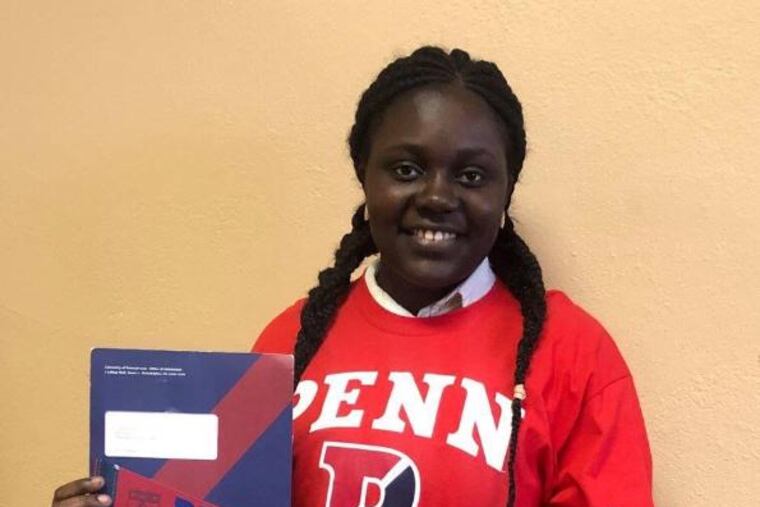To help students achieve, Pa. should expand school choice | Opinion
Pennsylvania already offers some measure of parental choice in K-12 education, but more choices would give students even more opportunities to succeed.

Zephaniah Sainta is headed to the University of Pennsylvania next year, but five years ago few would have thought it possible.
Having immigrated to Philadelphia from Haiti, Zephaniah’s parents enrolled her and her brother in their assigned district school in Philadelphia. But the school struggled to meet her needs, and her family started looking for options.
What Zephaniah’s parents really wanted was to send her to a private school. Yet tuition was simply not in the family’s budget.
That’s when Business Leadership Organized for Catholic Schools (BLOCS) stepped in. Under state law, businesses can make charitable contributions to scholarship organizations such as BLOCS and receive a tax credit for their donation. BLOCS is the largest such organization in Pennsylvania and has raised $40 million for scholarships next year.
“We see stories like this every year,” says Bill O’Brien, BLOCS CEO. “The stories can be as simple as ‘Mom and Dad got laid off and lost their job,’ and we step in and help and then the family gets back on track next year.”
He says, “The real story is in the inner-city schools in Philadelphia. We’re trying to give these students the opportunity to come out ahead.”
For nearly 20 years, Pennsylvania has provided tax credits worth 75 percent for donations to scholarship organizations. These corporate contributions have allowed the number of scholarships to nearly double from 17,000 in 2002 to 34,000 today.
In 2012, state officials added another, similar scholarship option for students attending a public school in a “low-achieving” school zone (schools that score in the bottom 15 percent of comparable schools on state tests). Scholarship organizations awarded more than 14,000 scholarships to eligible students last year.
State residents do not have to look far to find state lawmakers proposing even broader learning options for K-12 students this year. Next door in West Virginia, the legislature is considering a proposal to create education savings accounts, which allow families to do more than choose a new school for their child.
How would it work? Under the proposal, the state would deposit part of a participating child’s share of education funds (according to the state education formula) into a private account. The child’s parents could then use that money to buy education products and services for the student.
The money could be used to help buy textbooks, pay for a personal tutor, or pay private school tuition — or go toward all three, it the parents so chose. Unused account funds can be saved from year to year.
Lawmakers in six states have enacted similar proposals, with the most recent new accounts opening last fall in North Carolina (Nevada’s lawmakers enacted a law but have yet to fund the accounts). Arizona enacted the first such account law in 2011, starting with accounts for 75 children with special needs. This year, some 15,000 children are using accounts in Arizona, Florida, Mississippi, Tennessee, and North Carolina. Those benefiting from the programs include students who had been assigned to failing schools, children living on Native American tribal lands, and students in military families, to name a few.
Pennsylvania already offers some measure of parental choice in K-12 education. In addition to approximately 180 charter schools, the commonwealth offers two scholarship options. But to create more opportunity for students like Zephaniah to “come out ahead,” state officials should waste no time considering new ways to expand patent and student choices so even more students can aim high.
Jonathan Butcher is a senior policy analyst in The Heritage Foundation’s Center for Education Policy.